The world survived a nuclear and biological war. Can it survive the cyber war as well?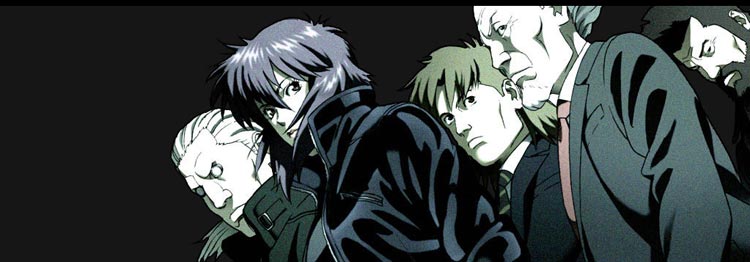
Ghost in the Shell is a police thriller set in the not too distant future. The world is now driven by cybernetics, and its soldiers are augmented to the point of super human abilities. The series takes place in Japan and follows the activities of Public Security Section 9, a special police force designed to handle the new cyberterrorists. In their world, computer hackers can hijack the cyborg minds of soldiers and citizens to commit atrocities. It is the job of Motoko Kusanagi, the Major, and Section 9 to bring these people to justice.
The series, Stand Alone Complex, Section 9 investigates a series of corporate terrorism and blackmail linked to a previous incident called the Laughing Man Incident. In the Laughing Man Incident a computer hacker uncovers internal memos in the micro-machine industry that seeks to cover up a more effective treatment for the disease cyberbrain sclerosis than their own micro-machine treatment. To keep their profits soaring, the industry covers up the vaccine. The hacker kidnaps the CEO of the industry leader and attempts to force the man to confess of the cover up. The CEO refuses to confess on television, and in desperation the hacker flees the area, hacking all the communications with his logo to cover his escape. This logo appears in the current corporate terrorism attempts. The investigation could mark the end of Section 9.
The sequel to Stand Alone Complex, Stand Alone Complex 2nd GIG, picks up various threads of back-story touched upon in the first series. This series follows the political realities of the world after 2 catastrophic world wars. Governance of many areas of the world are in dispute, and one terrorist seeks to wrest control of one of these areas from Japan to establish his own nation and potentially spark another world conflict. Sectin 9 must find this terrorist and his organization and stop him.
Characters
Chief Daisuke Aramaki is the administrator of Section 9. Strict but fiercely loyal to his team members, he often puts himself and his career on the line to protect the survival of the team members.
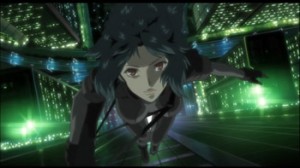 Major Motoko Kusanagi is a computer information specialist and field leader of Section 9. She became a cyborg at a young age after an accident – only her brain and a part of her brain stem remain organic. Her skill with information technology often leads her to doubt her continued humanity. She can easily interchange one cyborg body for another and even upload her consciousness to the internet. Because of this, she feels disconnected with existence and what it means to be human.
Major Motoko Kusanagi is a computer information specialist and field leader of Section 9. She became a cyborg at a young age after an accident – only her brain and a part of her brain stem remain organic. Her skill with information technology often leads her to doubt her continued humanity. She can easily interchange one cyborg body for another and even upload her consciousness to the internet. Because of this, she feels disconnected with existence and what it means to be human.
Batou is a former US Army Ranger. He is also a full cyborg but lacks most of the conflict the Major experiences as he was cyborized when he entered the special forces. Batou is Major’s best friend. As a Ranger he is capable of information technology manipulation, similar to the Major, but prefers the direct, physical approach.
Togusa, Batou’s partner and a former police detective. Togusa is human with only a few cybernetic implants. At times, this makes him feel inferior to his fully cyborg co-workers. He provides investigative skills and instinct the team lacks.
Ishikawa is Section 9’s information warfare specialist. Like Togusa, he is only slightly enhanced by technology. Laid back, his role is to bring the other characters up to date with new developments in the case as he finds more information in his investigations.
Saito is Section 9’s expert sniper. Saito is equipped with a prosthetic arm and Hawkeye, a specialized artificial eye. Both are necessary for his sniper duties. Saito dislikes grunt work with a passion.
Pazu is a chain smoking investigator. He is a jack of all trades and acts as a field agent.
Boma, the explosives specialist, is a physical match for Batou. He is a cybervirus expert.
The Tachikoma are nine spider-like sentient tanks that assist and transport Section 9 team members. They often provide comedic relief.
Ghost in the Shell asks heavy questions about the nature of existence and what it means to be human. The Major often wrestles with her disconnect with her humanity. She is more machine in many ways than even the artificially sentient Tachikoma since she doesn’t identify herself with a physical body as they do. In a world where consciousness itself can be hacked and manipulated, the question about what constitutes a soul, or ghost as the series refers to the soul, or whether a soul exists at all. Artificial intelligence is advanced enough to be human, further complicating the question. Reality can be manipulated through technology and almost completely avoided. The series often raises the question of just how much power information and communication technology has upon the mind. Even death’s inevitability seems an illusion when consciousness can exist in the electron flow of the internet.
There is some religious tension between those who believe in a natural God given body and the ‘sinners’ who lose their humanity to technology. Although this is a very small theme in the over all scope of the series.
Ghost in the Shell is smart, beautifully animated, and well written. It requires the viewer to pay attention to all the little details to follow the subtle twists in the story. Dark and reflective, Ghost in the Shell challenges the idea of what it means to be human and our relationship with technology. The series and movies stand far a part from the usual science fiction fare. In many ways, Ghost in the Shell presents a future that is entirely plausible.
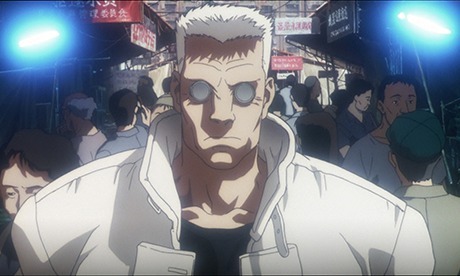
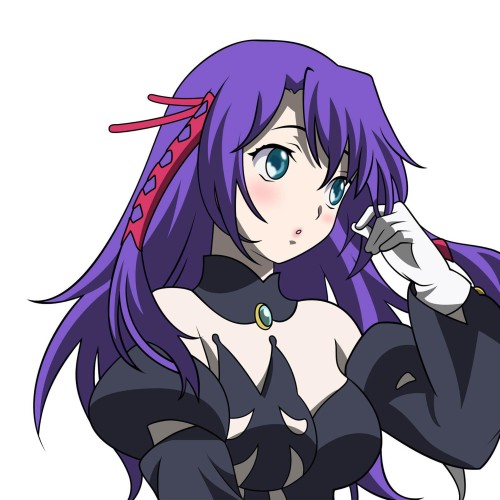
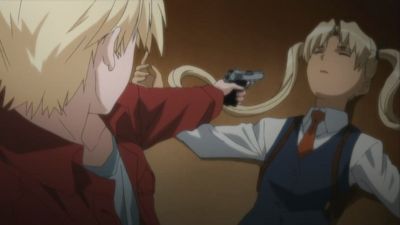
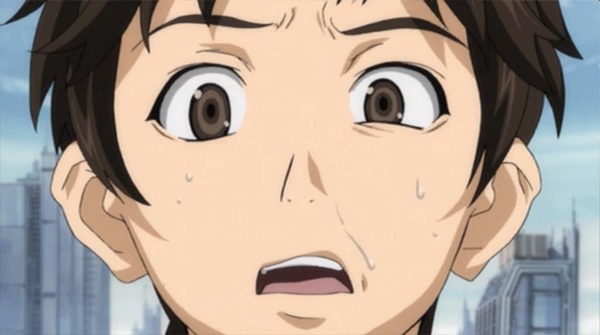
Well it’s not surprising that after years of watching anime even the good anime can feel a bit repetitive (it’s the same for me now). Gone are the days when anime was a new & exciting discovery. But you know I think this is a problem for pretty much every form of entertainment from live action TV, to film, to books, etc. I still think there is great things (old & new) out there to discover but you really have to dig. And sometimes it is okay & even fun to watch the same old thing again as well. I think Stand Alone Complex is pretty popular (I hear it talked about a lot) although I admit I haven’t seen it. Your post has definitely brought it back to my attention. I have seen Utena though. Personally despite its classic status I am not the biggest fan (i think it would have been better at 26 episodes instead of 39) but it has its moments and I love the ending so I will look forward to seeing your opinions on the series. If you happen to write a post on the series that is.
Anime, like other medium, has its own stereotypes and conventions that are used ad nauseum . It can be good that it has lost much of its “new and shiny,” but that can be an advantage: it raises the bar for the media. I haven’t seen Utena; i will have to add it to my watch list. Sometimes anime has the problem of not knowing when to end the story. It is best to just end a storyline than to drag it out.